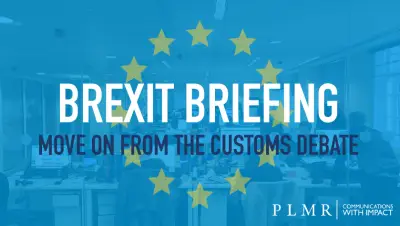The Prime Minister’s so-called “third way” proposal for a customs arrangement between the UK and the EU has, perhaps predictably, failed to please large groups of MPs. Some MPs of course seem stuck in a permanently implacable mode. But others are right to point out that the PM’s proposal seems designed to placate warring factions in her own party, rather than to be accepted seriously in Brussels.
According to several newspapers, the Secretary of State for Exiting the EU, David Davis, has said the PM’s new plan amounts to proposals that have already been rejected by Brussels. And he is right. The idea of the UK setting its own tariffs on goods and then electronically tracking goods to see if they end up in the EU will bring a smile to the face of anyone who has actually worked in government.
Customs arrangements are important to businesses. But I wonder if this endless debate between British politicians (for it is certainly an internal debate) about customs is starving other important issues of political oxygen. And time is running out to work out all the other details before we leave the EU.
Many trans-national companies are fretting about the lack of direction on regulations. Pharmaceutical companies are making contingency plans to fly their batch testers to mainland Europe, for example, just to re-test the batches of medicines that have been made and already tested in the UK. This is so the medicines can pass the “tested in the EU” requirement in order to be sold across the Continent.
Many countries around the world accept the “tested in the EU” standard for medicines and the UK currently exports its medicines around the world freely in this way.
It is plausible that these countries would accept a “tested in the UK” mark as a sign of quality assurance, but British civil servants need to work to make this happen, it is not going to happen automatically. There is a capacity constraint in government and time is running out to tie up the thousands of loose ends such as this, before we leave the EU.
A customs deal is sorely needed but while we debate among ourselves, a myriad regulatory, technical and practical details of our future relationship with the EU are going unaddressed. No wonder the business community is getting twitchy.




